Sharks Are Fucking Metal!

Sharks are fucking metal!
More Posts from Llamaslikesciencetoo and Others

One million full length movies are stored in this vial using DNA as storage media. We’re through the looking glass people. The future is now.



Come and take a “bite” out of nature & science, attending Explorers Society Members Event. #northmuseum #stemsisters #sharks (at North Museum of Nature & Science)
Inside the Rugged Lives of Mongolia’s Nomads
Filmmaker Brandon Li captures life in western Mongolia in his film Nomads of Mongolia. Watch the nomadic Kazakh people train eagles to hunt, herd yaks, and race camels in this visually stunning short.
By: National Geographic. Donate to the National Geographic Society

Northern Elephant Seals, Monterey Bay National Marine Sanctuary, CA, USA
Northern elephant seals were once hunted for their blubber, and were thought to be extinct until a small colony was found in the early 20th century. Since then, thanks to conservation efforts, northern elephant seal populations along the California coast have made an amazing recovery. Now, we continue to work with the public to protect this species and others protected under the Marine Mammal Protection Act. Interested in wildlife watching when you visit sanctuaries? Make sure to give these seals – and all other animals – plenty of space so they can thrive. The future of the world’s wildlife is truly in our hands. Learn more about how you can help at: http://sanctuaries.noaa.gov/protect/oceanetiquette.html. Photograph: Mike Baird/NOAA
(via: NOAA Office of National Marine Sanctuaries)
Astronaut Scott Kelly to Retire from NASA in April
NASA logo. March 13, 2016 NASA astronaut and one-year crew member Scott Kelly will retire from the agency, effective April 1. Kelly joined the astronaut corps in 1996 and currently holds the American record for most time spent in space. After retiring, Kelly will continue to participate in the ongoing research related to his one-year mission. He will provide periodic medical samples and support other testing in much the same way that his twin brother, former astronaut Mark Kelly, made himself available for NASA’s Twins Study during his brother’s mission. “This year-in-space mission was a profound challenge for all involved, and it gave me a unique perspective and a lot of time to reflect on what my next step should be on our continued journey to help further our capabilities in space and on Earth,” Kelly said. “My career with the Navy and NASA gave me an incredible chance to showcase public service to which I am dedicated, and what we can accomplish on the big challenges of our day. I am humbled and excited by new opportunities for me to support and share the amazing work NASA is doing to help us travel farther into the solar system and work with the next generation of science and technology leaders.”
Image above: NASA astronaut Scott Kelly inside the cupola of the International Space Station, a special module that provides a 360-degree viewing of the Earth and the station. Image Credit: NASA. Kelly flew in space four times, beginning with space shuttle Discovery’s trip to NASA’s Hubble Space Telescope on the STS-103 servicing mission in 1999. On his second mission, STS-118, he crossed the threshold of the International Space Station for the first time as commander of space shuttle Endeavour. He returned to the station for a six-month stay in 2010, commanding Expedition 26. A veteran of spaceflight, Kelly accepted the opportunity to participate in NASA’s unprecedented yearlong space station mission, which aimed to expand the boundaries of space exploration beyond low-Earth orbit through the collection of critical data on how the human body responds to extended space missions. On this mission, Kelly eclipsed two American space records. “Records are meant to be broken,” Kelly said. “I am looking forward to when these records in space are surpassed.” Kelly broke the American record for most cumulative time in space during his one-year mission, accruing 520 days. “Scott’s contributions to NASA are too many to name,” said Brian Kelly, director of Flight Operations at NASA’s Johnson Space Center in Houston. “In his year aboard the space station, he took part in experiments that will have far-reaching effects, helping us pave the way to putting humans on Mars and benefiting life on Earth. His passion for this work has helped give hundreds of thousands of people a better understanding of what NASA does, thanks in part to the numerous photos and updates he shared from space. We appreciate his years of service and anticipate many benefits to come from them, thanks to the research he’s supporting.” Related links: One-year crew: https://www.nasa.gov/content/one-year-crew Twins Study: https://www.nasa.gov/twins-study For Kelly’s biography, visit: http://www.jsc.nasa.gov/Bios/htmlbios/kellysj.pdf Image (mentioned), Text, Credits: NASA/Tabatha Thompson/Johnson Space Center/Brandi Dean/Karen Northon. Greetings, Orbiter.ch Full article
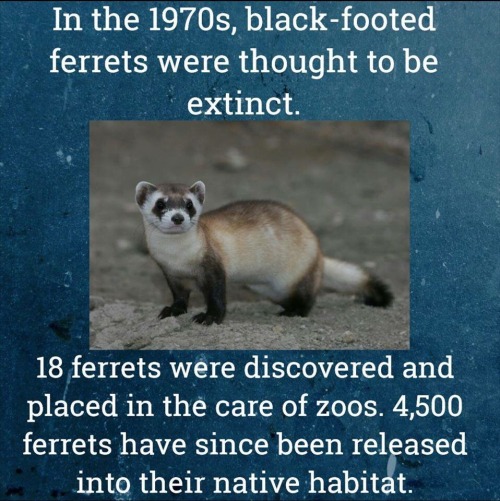
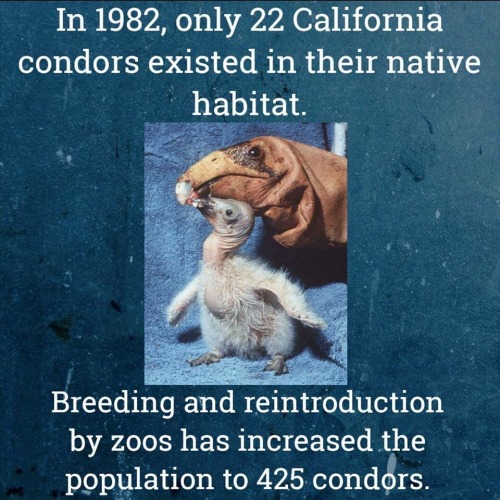


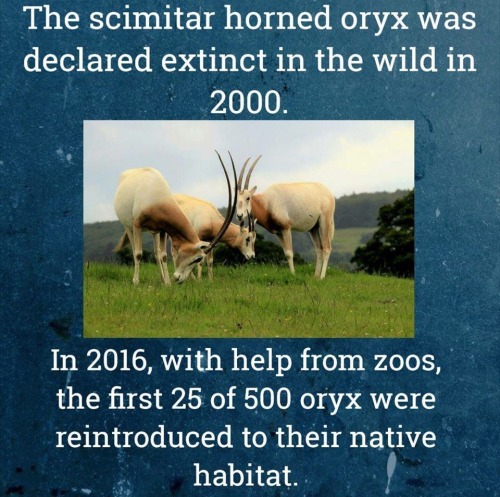
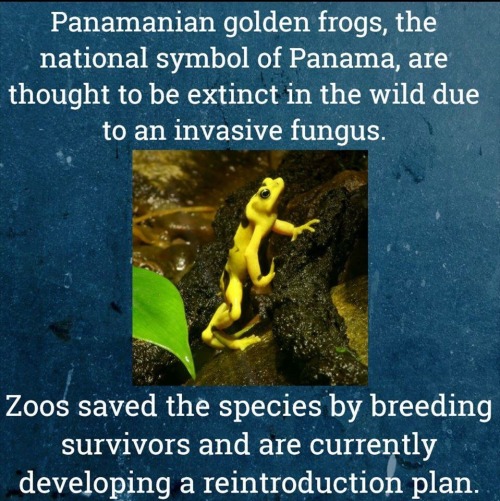
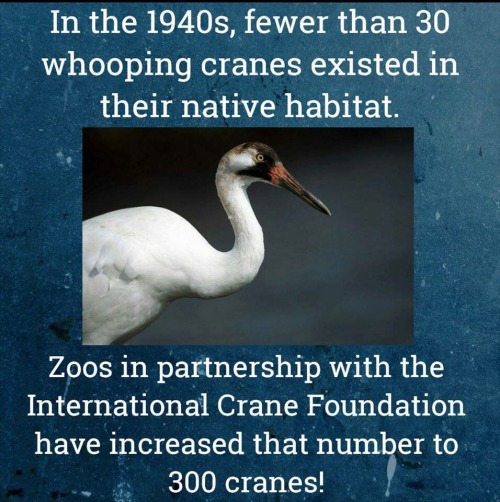

Zoos prevent extinction. This is why I support zoos. This is why the world should support zoos.
Meme credit goes to the zookeepers at www.facebook.com/ZoosSavingSpecies @zoossavingspecies
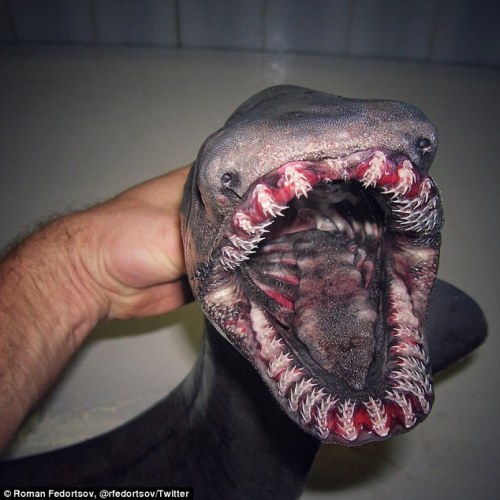
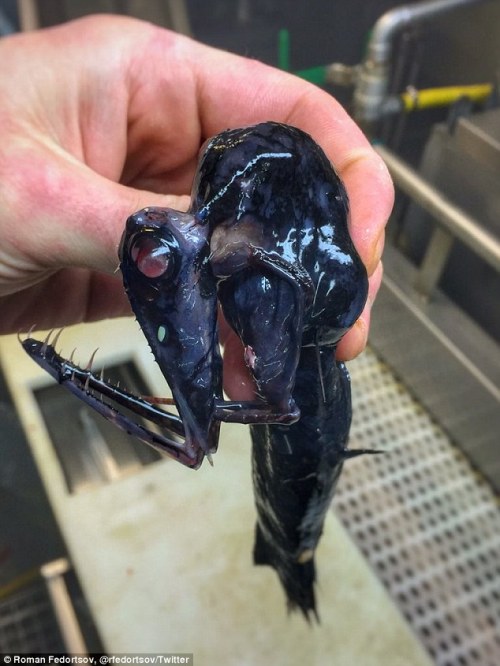
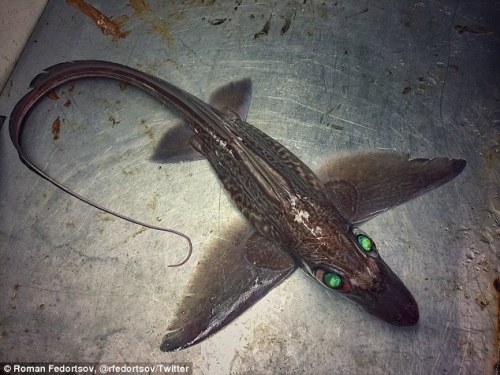
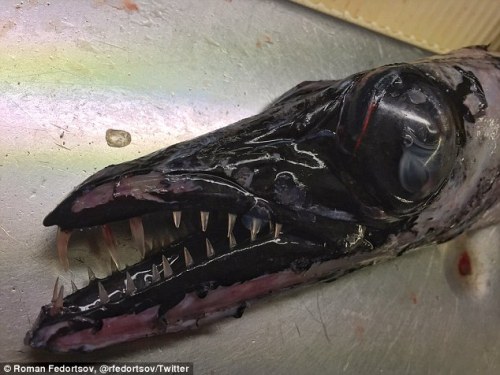
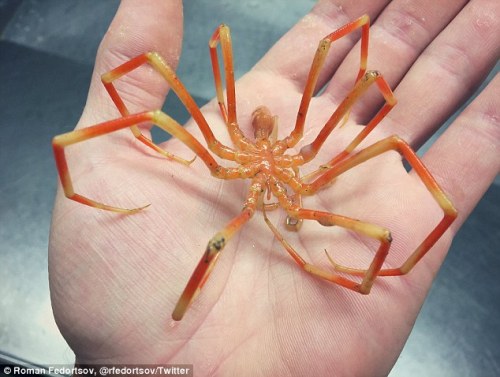
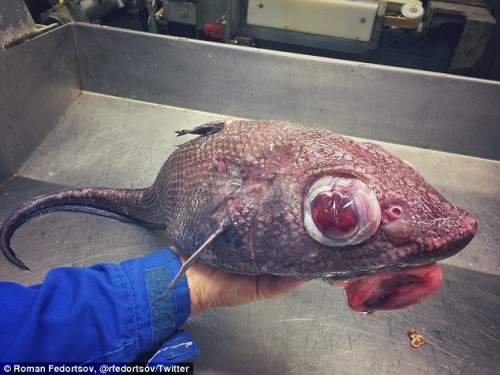
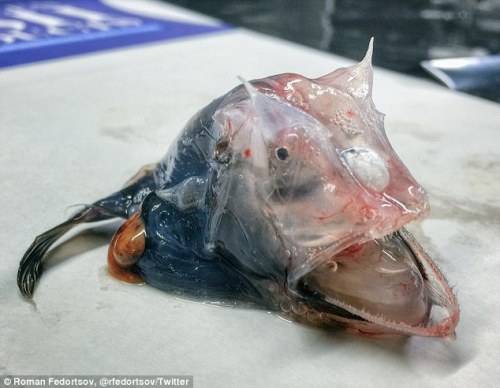
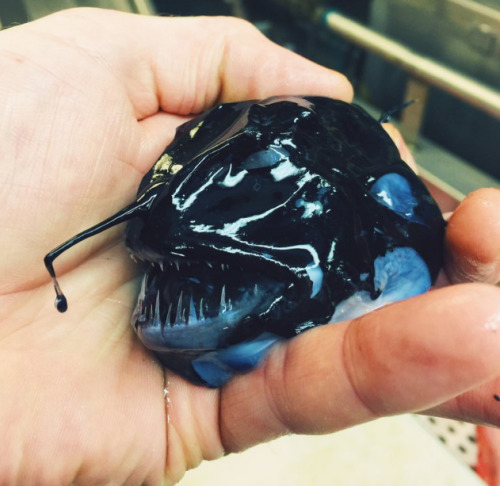
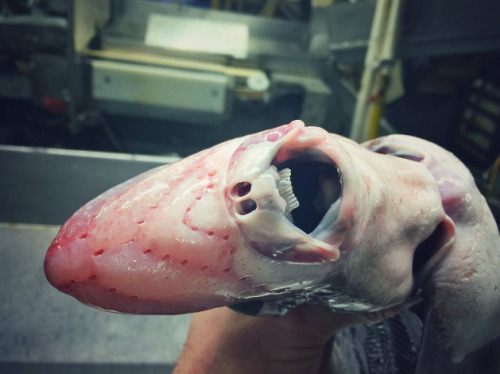
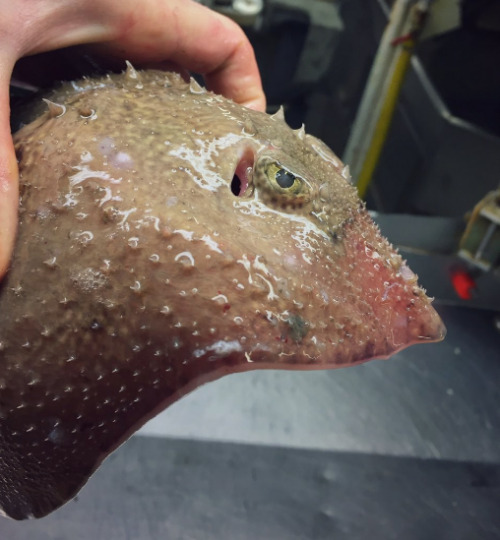
Russian deep sea fisherman becomes online hit after revealing bizarre catches
1. Frilled Shark 2. Unidentified, possibly a stoplight loosejaw, a deep-sea dragonfish from the genus Malacosteus 3. Ghost Shark 4. Black Scabbardfish 5. Sea Spider 6. Grenadier or Rattail Fish 7. Unidentified 8. Anglerfish, species unidentified 9. Unidentified 10. Ray, species unidentified







Swimming With Whale Sharks - Philippines by Tommy Schultz
70 Ask-Questions for Science people... because Science
What’s your major/field?
What made you choose your major/field?
What’s your favorite thing to do in the lab?
What’s the most interesting lab story?
What’s your favorite class?
Which professors do you ship together?
Annoying things your labmates do?
What are your thoughts on animal testing?
Any chemical burns or lab related accidents?
On a scale from 1 to 10 how sensitive are your lab scales?
Who’s your favorite scientist?
Who’s your least favorite scientist?
Favorite female scientists?
Do you do field work? What kind?
Ever tasted an experiment?
What are your typical daydreams about?
How often do you say “for science”?
Do you think about murdering someone with science?
Ever used your scientific knowledge for “bad” stuff?
Whats the most “evil scientist” thing you can think of?
If you had infinite funding, what would your research be about?
What is your favorite scientific theory?
Is a scientific mind attractive to you?
What is your title?
What is the role of technology in your field?
What do you enjoy most about doing science?
What do you enjoy least about doing science?
What is your tolerance on stupidity?
What are your strengths in your field of study?
Your weaknesses?
Do you have a bit of a god complex?
Why are biology majors so….you know..
What motivates you?
Do you like being supervised?
Describe your analytic abilities.
How would your friends describe you?
How would your professors describe you?
Is math a little bit too mathy for you?
Do you code? if yes, how many languages?
Thoughts on AI and robots?
What’s your favorite science blog?
Philosophical views on humanity and nature?
What are your short term and long term career goals?
Do you understand general relativity?
Favorite Dinosaur? Fossil? whatever…
How many bones can you name in medical terms?
How many muscles can you name in medical terms?
What’s your favorite molecule?
Do you like proofs or cold hard Mathematics?
What’s your favorite element?
Favorite show?
Favorite scientific fictional character?
What’s your favorite micro organism?
Have you ever held an organ in your hands?
Lab coats?
What about … lab goats?
White latex gloves or blue ones?
What’s the most dangerous experiment you’ve done in the lab?
What was the first time you got caught doing science?
What was you’r parent’s reaction when you told them you’re a scientist?
Except for lab coats in the bedroom what other kinks do you have?
What would you do a TED talk on?
Are you creative, artistic?
Do you have an attractive professor you can’t pay attention to?
What’s your favorite mineral?
What scientific books would you recommend?
Thoughts on spectral analysis?
Any interesting stories from the lab?
Ever did or thought about doing it or someone in the lab?
How much science is too much science?
Compiled by: rudescience
-
 master-sparkle liked this · 8 years ago
master-sparkle liked this · 8 years ago -
 anxiouscapricorn liked this · 8 years ago
anxiouscapricorn liked this · 8 years ago -
 uwu-ni liked this · 8 years ago
uwu-ni liked this · 8 years ago -
 table-for-rizzo liked this · 8 years ago
table-for-rizzo liked this · 8 years ago -
 apaterno reblogged this · 8 years ago
apaterno reblogged this · 8 years ago -
 apaterno liked this · 8 years ago
apaterno liked this · 8 years ago -
 elaineharper98 reblogged this · 8 years ago
elaineharper98 reblogged this · 8 years ago -
 madmansmusician reblogged this · 8 years ago
madmansmusician reblogged this · 8 years ago -
 earthtocarolina reblogged this · 8 years ago
earthtocarolina reblogged this · 8 years ago -
 dinoduckseatrel reblogged this · 8 years ago
dinoduckseatrel reblogged this · 8 years ago -
 dinoduckseatrel liked this · 8 years ago
dinoduckseatrel liked this · 8 years ago -
 nut-button-baby liked this · 8 years ago
nut-button-baby liked this · 8 years ago -
 starsandfossils liked this · 8 years ago
starsandfossils liked this · 8 years ago -
 lil-dragon-fruit reblogged this · 8 years ago
lil-dragon-fruit reblogged this · 8 years ago -
 positivelyhappyvibes liked this · 8 years ago
positivelyhappyvibes liked this · 8 years ago -
 dilophoraptor reblogged this · 9 years ago
dilophoraptor reblogged this · 9 years ago -
 archensmogon reblogged this · 9 years ago
archensmogon reblogged this · 9 years ago -
 archensmogon liked this · 9 years ago
archensmogon liked this · 9 years ago -
 birdabyss liked this · 9 years ago
birdabyss liked this · 9 years ago -
 goma-tama liked this · 9 years ago
goma-tama liked this · 9 years ago -
 evolution-incarnate reblogged this · 9 years ago
evolution-incarnate reblogged this · 9 years ago -
 evolution-incarnate liked this · 9 years ago
evolution-incarnate liked this · 9 years ago -
 littlesully reblogged this · 9 years ago
littlesully reblogged this · 9 years ago -
 fearn-gully liked this · 9 years ago
fearn-gully liked this · 9 years ago -
 saturnine-dreams reblogged this · 9 years ago
saturnine-dreams reblogged this · 9 years ago -
 sharklead-blog liked this · 9 years ago
sharklead-blog liked this · 9 years ago -
 illbeyourloverman reblogged this · 9 years ago
illbeyourloverman reblogged this · 9 years ago -
 lorenzo-of-slytherin reblogged this · 9 years ago
lorenzo-of-slytherin reblogged this · 9 years ago -
 gin-and-disappointment liked this · 9 years ago
gin-and-disappointment liked this · 9 years ago -
 hypatias-sister liked this · 9 years ago
hypatias-sister liked this · 9 years ago -
 schwarzwaelder-kirschtorte reblogged this · 9 years ago
schwarzwaelder-kirschtorte reblogged this · 9 years ago -
 virginiagentlenerd reblogged this · 9 years ago
virginiagentlenerd reblogged this · 9 years ago -
 gameturbation reblogged this · 9 years ago
gameturbation reblogged this · 9 years ago -
 gameturbation liked this · 9 years ago
gameturbation liked this · 9 years ago -
 gameelder3 liked this · 9 years ago
gameelder3 liked this · 9 years ago -
 leserlylynn26 reblogged this · 9 years ago
leserlylynn26 reblogged this · 9 years ago
Mainly interested in ecology, but also the entirety of science.
179 posts